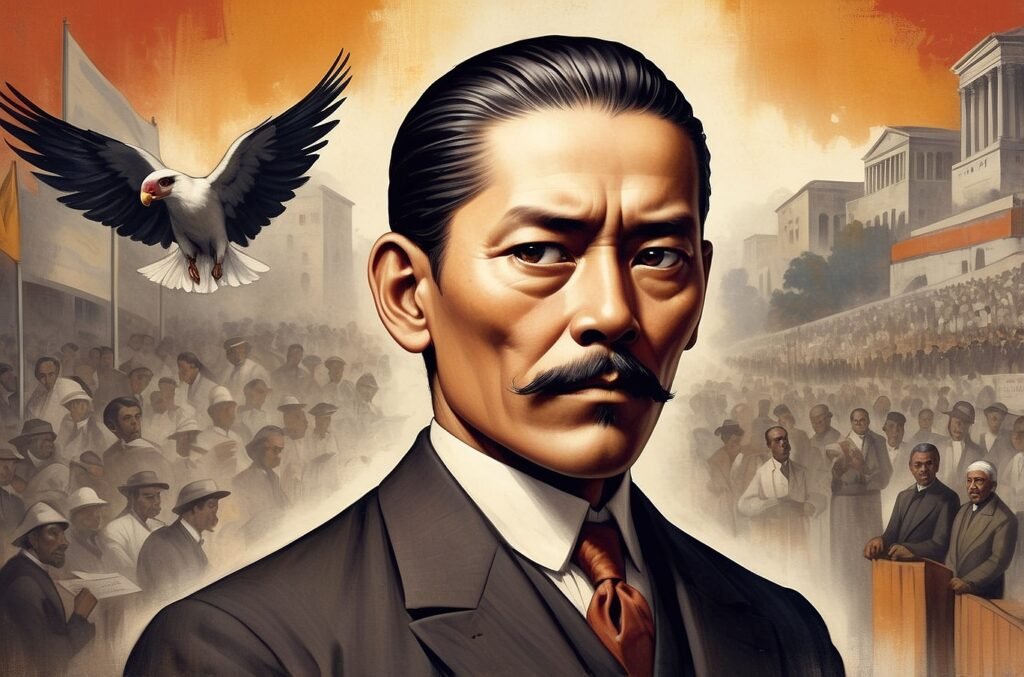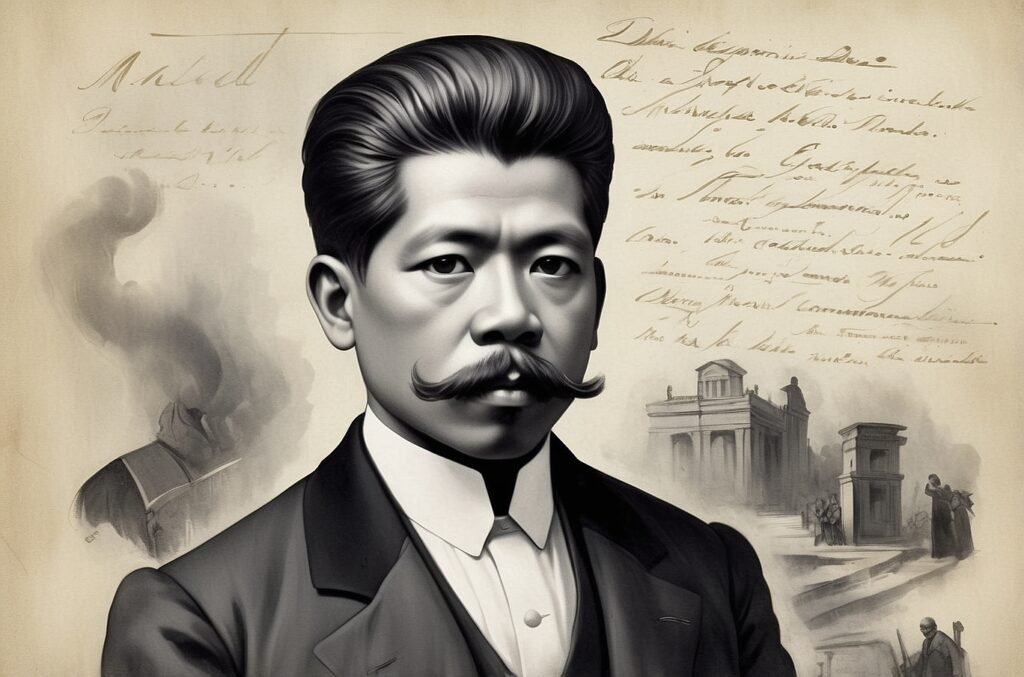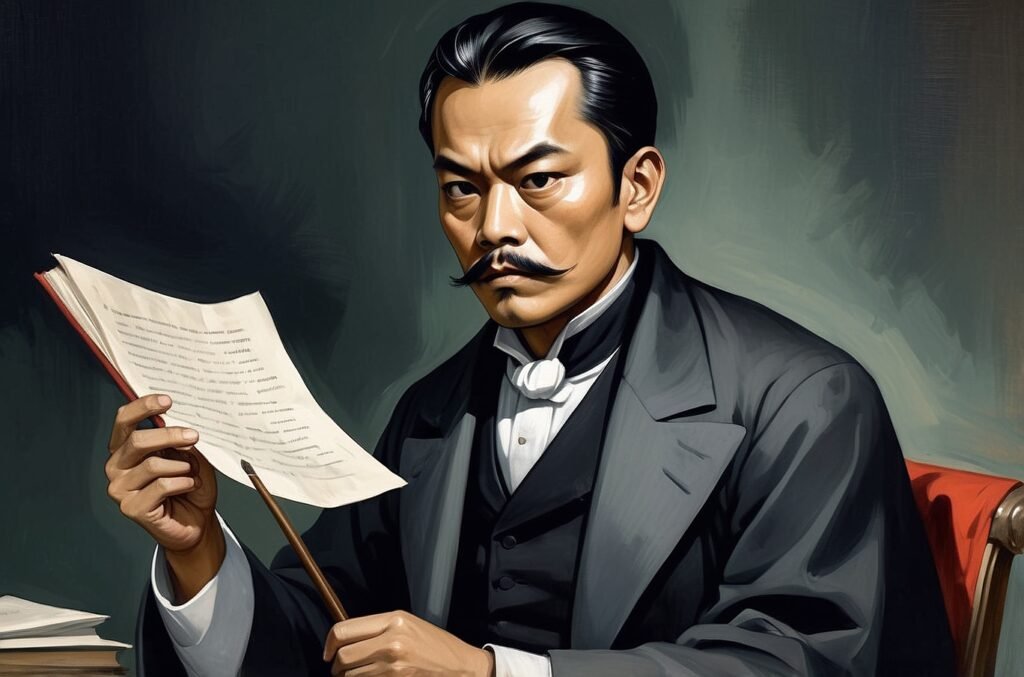Graciano Lopez Jaena stands as a remarkable figure in Philippine history, renowned for his oratorical prowess and significant contributions to the Philippine propaganda movement during the late 19th century. Born on December 18, 1856, in Jaro, Iloilo, Lopez Jaena’s life was marked by a passionate pursuit of social reform and national liberation. His journey from a young medical student to a fiery orator and journalist in Spain exemplifies the spirit of Filipino intellectual resistance against Spanish colonial rule. This comprehensive exploration delves into the life, works, and lasting impact of Graciano Lopez Jaena, with a particular focus on his role as the founder of La Solidaridad, a pivotal publication in the Philippine reform movement.
Early Life and Education
Birth and Family Background
Graciano Lopez Jaena was born into a middle-class family in Jaro, Iloilo, on December 18, 1856. His parents, Placido Lopez and Maria Jacoba Jaena, were of mixed Spanish and native Filipino descent. This heritage would later play a significant role in shaping Lopez Jaena’s perspective on colonial society and his aspirations for reform. Growing up in a relatively privileged environment, young Graciano had access to education and cultural experiences that were not available to many of his contemporaries.
Educational Journey
Lopez Jaena’s formal education began at the Seminario de San Vicente Ferrer in Jaro, where he received his primary and secondary schooling. It was during these formative years that he first displayed his exceptional oratorical skills and keen intellect. His academic prowess and natural talent for public speaking caught the attention of his teachers and peers alike. In 1874, at the age of 18, Lopez Jaena moved to Manila to pursue higher education. He enrolled in the University of Santo Tomas with the intention of studying medicine, a field that would later influence his social and political views.
Early Influences and Intellectual Development
During his time in Manila, Lopez Jaena was exposed to a wider range of ideas and social realities. He became increasingly aware of the inequalities and injustices prevalent in colonial Philippine society. This period of intellectual awakening coincided with the growing reform movement in the Philippines, which sought to address the grievances of the Filipino people against Spanish colonial rule. Lopez Jaena’s interactions with other young intellectuals and his observations of social disparities would significantly shape his future political activism and journalistic endeavors.
Rise as an Orator and Social Critic
Early Public Speeches and Writings
Graciano Lopez Jaena’s reputation as a gifted orator began to take shape during his time in Manila. His speeches, often delivered at social gatherings and academic events, were characterized by their eloquence, passion, and critical analysis of colonial society. Lopez Jaena’s oratory style combined emotional appeal with logical argumentation, making his speeches both compelling and thought-provoking. He addressed a range of issues, including social inequality, the need for educational reform, and the abuses of colonial authorities.
“Fray Botod” and Political Satire
One of Lopez Jaena’s most notable early works was the satirical piece “Fray Botod” (The Corpulent Friar), written in 1876. This biting critique of the Spanish friars in the Philippines showcased Lopez Jaena’s skill in using humor and irony to expose social and political injustices. “Fray Botod” portrayed a gluttonous and corrupt friar, symbolizing the excesses and moral decay of the colonial clergy. The publication of this work marked Lopez Jaena as a bold critic of the established order and brought him to the attention of both sympathizers and opponents of reform.
Table: Key Works of Graciano Lopez Jaena
| Year | Work | Type | Description |
|---|---|---|---|
| 1876 | Fray Botod | Satirical Essay | Critique of Spanish friars in the Philippines |
| 1882 | La Hija del Fraile | Novel | Exploration of social issues in colonial society |
| 1889-1895 | Various Articles | Journalistic Pieces | Published in La Solidaridad |
| 1891 | Discurso pronunciado en el meeting celebrado en el Teatro de la Alhambra | Speech | Address on Philippine reforms delivered in Madrid |
Confrontations with Colonial Authorities
Lopez Jaena’s outspoken criticism of colonial abuses soon brought him into conflict with Spanish authorities in the Philippines. His writings and speeches were deemed subversive, and he faced increasing pressure and threats of persecution. This hostile environment, coupled with his desire to continue his education and activism, led Lopez Jaena to make a crucial decision that would shape the course of his life and the Philippine reform movement.
Exile in Spain and the Propaganda Movement
Journey to Europe
In 1880, at the age of 24, Graciano Lopez Jaena left the Philippines for Spain. This self-imposed exile was both an escape from potential persecution and an opportunity to continue his activism in a new environment. Upon arriving in Barcelona, Lopez Jaena immersed himself in the vibrant intellectual and political scene of late 19th-century Spain. He connected with other Filipino expatriates and Spanish liberals who shared his vision of reform for the Philippines.
Involvement in the Propaganda Movement
The Propaganda Movement, a collective effort by Filipino intellectuals in Europe to advocate for reforms in the Philippines, was gaining momentum during Lopez Jaena’s early years in Spain. He quickly became a key figure in this movement, using his oratorical skills and journalistic talents to raise awareness about Philippine issues among Spanish and European audiences. Lopez Jaena’s participation in various political and social organizations provided him with platforms to articulate the Filipino cause.
Notable Speeches and Public Appearances
During his time in Spain, Lopez Jaena delivered several significant speeches that cemented his reputation as a powerful orator. One of his most famous addresses was given at the Ateneo Barcelonés in 1887, where he eloquently argued for Philippine representation in the Spanish Cortes (parliament). His speeches were characterized by their logical structure, emotional appeal, and comprehensive analysis of colonial issues. Lopez Jaena’s ability to captivate audiences and articulate complex political ideas made him an invaluable asset to the Propaganda Movement.
Founding of La Solidaridad
Conception and Establishment
The founding of La Solidaridad in 1889 marked a pivotal moment in both Graciano Lopez Jaena’s career and the Philippine reform movement. Recognizing the need for a dedicated publication to voice Filipino concerns and aspirations, Lopez Jaena, along with other prominent Filipino expatriates, established this fortnightly newspaper in Barcelona. La Solidaridad served as the primary organ of the Propaganda Movement, providing a platform for Filipino intellectuals to advocate for reforms and challenge colonial policies.
Editorial Vision and Content
As the founding editor of La Solidaridad, Lopez Jaena played a crucial role in shaping the publication’s editorial direction. The newspaper covered a wide range of topics, including:
- Political reforms in the Philippines
- Social and economic issues affecting Filipinos
- Cultural and historical articles highlighting Filipino identity
- Critical analyses of Spanish colonial policies
- Reports on international events relevant to the Philippine cause
Lopez Jaena’s editorial approach emphasized factual reporting, logical argumentation, and a commitment to peaceful reform. He sought to educate both Spanish and Filipino readers about the realities of colonial rule and the legitimate aspirations of the Filipino people.
Impact and Legacy of La Solidaridad
La Solidaridad quickly became the most influential publication of the Propaganda Movement. Its circulation, though limited, reached key audiences in Spain, the Philippines, and other European countries. The newspaper played a crucial role in:
- Articulating Filipino grievances and reform proposals
- Fostering a sense of national identity among Filipinos
- Challenging colonial stereotypes and misconceptions about the Philippines
- Providing a forum for intellectual exchange among Filipino reformists
- Documenting the development of Filipino political thought
While La Solidaridad did not achieve immediate political reforms, it laid the intellectual foundation for the Philippine independence movement and contributed significantly to the development of Filipino nationalism.
Literary and Journalistic Contributions
Writing Style and Themes
Graciano Lopez Jaena’s literary and journalistic works were characterized by their incisive analysis, satirical wit, and passionate advocacy for reform. His writing style combined elements of classical rhetoric with modern journalistic techniques, making his articles both persuasive and accessible to a wide readership. Lopez Jaena frequently addressed themes such as:
- Social inequality in colonial society
- The need for educational and administrative reforms
- Criticism of clerical abuses and the Spanish friar orders
- The importance of Filipino representation in government
- The cultural and intellectual capabilities of Filipinos
Notable Articles and Essays
Throughout his career, Lopez Jaena produced numerous articles and essays that left a lasting impact on Philippine literature and political thought. Some of his most significant works include:
- “Los Indios de Filipinas” (The Indians of the Philippines): An essay challenging racial stereotypes and asserting Filipino dignity
- “Filipinas en España” (The Philippines in Spain): A series of articles examining the relationship between the colony and the metropole
- “La Situación de Filipinas” (The Situation in the Philippines): A comprehensive analysis of social and political conditions in the colony
These works, along with his editorials in La Solidaridad, showcased Lopez Jaena’s ability to blend factual reporting with compelling argumentation, making him one of the most influential Filipino writers of his time.
Challenges and Later Years
Financial Struggles and Personal Hardships
Despite his intellectual achievements, Graciano Lopez Jaena faced significant personal and financial challenges during his years in Spain. The costs of publishing La Solidaridad and supporting himself in exile placed a considerable strain on his resources. Lopez Jaena often lived in poverty, relying on the support of friends and sympathizers to continue his work. These financial difficulties were compounded by health issues, which became increasingly severe in his later years.
Ideological Conflicts within the Propaganda Movement
As the Propaganda Movement evolved, Lopez Jaena found himself involved in ideological debates with other Filipino reformists. Differences of opinion on strategies, goals, and leadership sometimes led to tensions within the movement. These conflicts, while intellectually stimulating, also contributed to personal and professional challenges for Lopez Jaena.
Final Years and Legacy
Graciano Lopez Jaena’s health deteriorated rapidly in the early 1890s, exacerbated by years of financial hardship and the stress of his political activities. He passed away on January 20, 1896, in Barcelona, at the age of 39. Despite his untimely death, Lopez Jaena’s contributions to Philippine nationalism and the reform movement left an indelible mark on Filipino history. His oratorical skills, journalistic works, and role in founding La Solidaridad ensured his place among the great figures of the Philippine nationalist movement.
Impact on Philippine Nationalism and Reform
Influence on Filipino Intellectual Thought
Graciano Lopez Jaena’s writings and speeches significantly influenced the development of Filipino nationalist thought. His articulation of Filipino grievances and aspirations helped shape the political discourse of his time and provided a foundation for future independence movements. Lopez Jaena’s emphasis on education, cultural pride, and peaceful reform resonated with many Filipinos and inspired a new generation of activists and thinkers.
Contribution to the Propaganda Movement’s Goals
As a key figure in the Propaganda Movement, Lopez Jaena played a crucial role in advancing its primary objectives:
- Representation of the Philippines in the Spanish Cortes
- Secularization of the Philippine clergy
- Freedom of speech and assembly for Filipinos
- Equal rights and opportunities for Filipinos in government and education
- Abolition of the polo y servicios (forced labor) system
While these goals were not fully achieved during his lifetime, Lopez Jaena’s efforts contributed to raising awareness and laying the groundwork for future reforms.
Long-term Effects on Philippine Politics and Society
The ideas and principles advocated by Lopez Jaena and his contemporaries in the Propaganda Movement had lasting effects on Philippine politics and society:
- They fostered a sense of national identity that transcended regional and ethnic divisions
- They promoted the importance of education and intellectual development among Filipinos
- They challenged colonial stereotypes and asserted Filipino dignity and capability
- They introduced concepts of civil rights and democratic governance that would influence future Philippine political structures
Comparative Analysis: Lopez Jaena and Other Propagandists
To better understand Graciano Lopez Jaena’s unique contributions, it’s helpful to compare him with other prominent figures of the Propaganda Movement:
| Propagandist | Key Contributions | Distinctive Traits |
|---|---|---|
| Graciano Lopez Jaena | Founder of La Solidaridad, Orator, Satirist | Fiery speeches, satirical writings, journalistic focus |
| José Rizal | Novelist, Essayist, Polymath | Novels (Noli Me Tángere, El Filibusterismo), scientific works, versatility |
| Marcelo H. del Pilar | Editor of La Solidaridad, Political Strategist | Diplomatic approach, organizational skills, legal expertise |
| Mariano Ponce | Historian, Diplomat | Historical writings, international connections, documentation of the movement |
While each of these figures made significant contributions to the Propaganda Movement, Lopez Jaena’s oratorical skills and journalistic focus set him apart. His ability to inspire and mobilize through powerful speeches and incisive articles complemented the more scholarly and diplomatic approaches of his contemporaries.
Conclusion
Graciano Lopez Jaena’s life and work embody the spirit of intellectual resistance and reform that characterized the Philippine Propaganda Movement. As an orator, journalist, and founder of La Solidaridad, he played a pivotal role in articulating Filipino aspirations and challenging the injustices of Spanish colonial rule. Despite facing personal hardships and dying at a young age, Lopez Jaena left an enduring legacy that continues to inspire generations of Filipinos.
His contributions to Philippine nationalism, journalism, and political thought were multifaceted and profound. Through his speeches, writings, and editorial leadership, Lopez Jaena helped shape the discourse on Philippine reform and independence. He gave voice to the grievances and hopes of his fellow Filipinos, challenging colonial stereotypes and asserting the dignity and capability of his people.
The founding of La Solidaridad stands as perhaps his most significant tangible achievement, providing a crucial platform for Filipino intellectuals to engage with Spanish and European audiences. This publication, under Lopez Jaena’s initial editorship, became the cornerstone of the Propaganda Movement’s efforts to advocate for reforms and raise awareness about Philippine issues.
While the immediate political goals of Lopez Jaena and his contemporaries were not fully realized during their lifetimes, their work laid the intellectual and ideological foundation for the Philippine independence movement. The principles of education, civil rights, and national identity that they championed continued to resonate in Philippine politics and society long after the end of Spanish colonial rule.
In retrospect, Graciano Lopez Jaena emerges not just as a historical figure, but as a symbol of Filipino intellectual courage and patriotic dedication. His life’s work reminds us of the power of words and ideas in shaping national destinies and challenging oppressive systems. As the Philippines continues to grapple with issues of national identity, social justice, and political reform, the legacy of Lopez Jaena and the Propaganda Movement remains relevant and inspiring.
Disclaimer: This article aims to provide accurate historical information based on available sources. However, given the complexities of historical research and the potential for new discoveries, readers are encouraged to cross-reference with other scholarly works. If you notice any inaccuracies or have additional information to contribute, please contact us so we can update and improve this article promptly.




